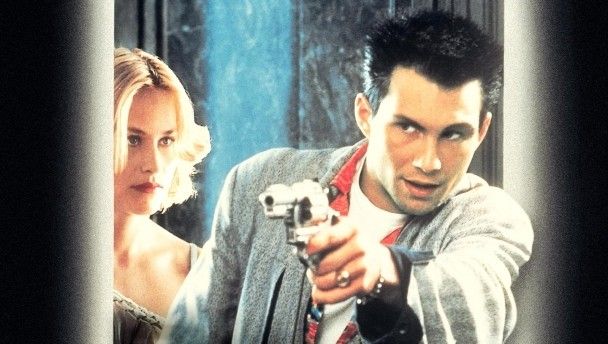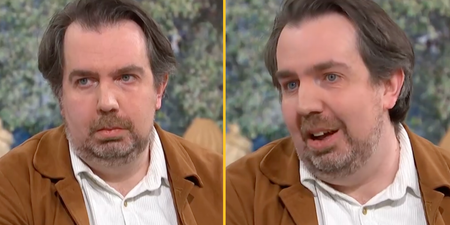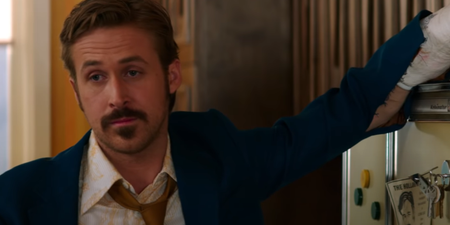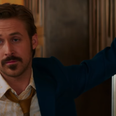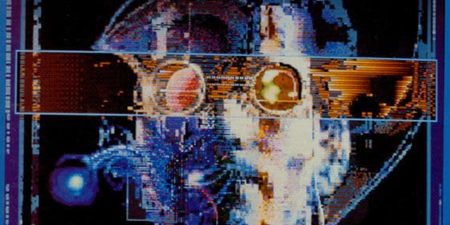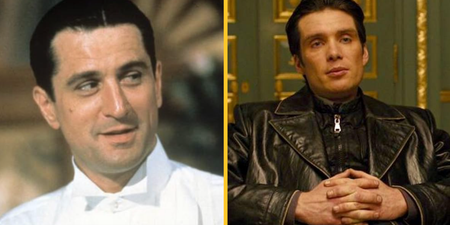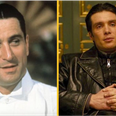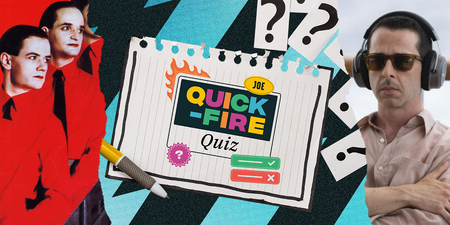When is a Quentin Tarantino film not a Quentin Tarantino film? When it’s scripted but not directed by the man himself and thus lacks the appreciation of his later classics.
Before Tarantino had stunned the world with the double bill that was Reservoir Dogs and Pulp Fiction, he was an aspiring screenwriter who thought nothing of selling his True Romance screenplay for $50,000 – the lowest amount allowed for such a transaction according to the Writers Guild of America. If you’ve seen the film’s DVD special features, you’ll find that the deal may have been done for as little as $10,000.
So what did the film’s studio get for their money? Possibly one of the best action movies of the 1990s, with sparkling dialogue, the attraction of a terrific cast and in Man On Fire director Tony Scott, a safe pair of hands who wisely didn’t tinker with Tarantino’s work, albeit aside from one major alteration. For all of True Romance‘s charms, perhaps its most surprising aspect is that rewatching it nearly 20 years later, it actually makes you wonder how Christian Slater never fulfilled his Hollywood potential.
Slater stars as Elvis-obsessed comic book store clerk Clarence (when you realise that his character is also a film buff and loves Sonny Chiba’s work, you realise that it’s basically Tarantino writing a fantasy version of himself), who quickly falls head over heels in love with a call girl named Alabama (and she with him) who had been hired for him as a birthday present. After a night of passion and marriage the next day, both Clarence and Alabama are absolutely devoted to one another and ready to begin their life anew.
There’s just one smack-talking individual standing in the way of their plans for happiness – the “whiteboy” dreadlocked pimp of Alabama, Drexl, played with menace by an unrecognisable Gary Oldman. After a heart-stopping showdown that quickly turns violent, Clarence and Albama are on the run with stolen cocaine which they plan to sell in Hollywood, while Sicilian mobsters led by Christopher Walken are on their tail.
Though Clarence and Alabama were undeniably the focal point of all True Romance‘s pre-release material, the film is undoubtedly an ensemble piece, with tiny but memorable roles for the likes of James Gandolfini and even Brad Pitt as a couchbound stoner. Yet the most memorable scene occurs in a terrifying interrogation scene between Christopher Walken’s Vincenzo and Dennis Hopper’s Clifford, father of Clarence.
Undoubtedly one of the best-written scenes of Tarantino’s career, the scene occurs after Clarence and Alabama have left for Hollywood. Though Clifford pleads his innocence as to their whereabouts, he gets a lesson on just how good Walken’s race are at spotting liars. Realising that his efforts to lie will prove futile, Clifford instead accepts his fate – that the only way to protect his son is to insult Vincenzo so gravely that he receives a quick death and leaves no hints of where the newlyweds may have gone. It’s a masterclass of acting from both men and despite appearing to be ad-libbed, the reality is that just two words in the entire interaction were not part of Tarantino’s script.
Speaking of Tarantino, there are some die hard fans who claim that Tony Scott’s somewhat sanitised ending (which deviates from a far more sombre denouement in the script) is a black mark on the entire film, but as the director explained at the time of its release, “I just fell in love with these characters…”. You’ll likely feel the same as the Scott once you take in one of the hidden gems of Tarantino’s career.
For more cult films, check out the Jameson Cult Film Club.
